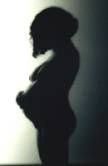Depressed Teenage Mothers at Risk of Repeat Pregnancy
Adolescent mothers who are depressed are at higher risk for rapid subsequent pregnancy than their non-depressed counterparts, researchers report in the March issue of the Archives of Pediatrics & Adolescent Medicine.

MONDAY, March 3 (HealthDay News) -- Adolescent mothers who are depressed are at higher risk for rapid subsequent pregnancy than their non-depressed counterparts, researchers report in the March issue of the Archives of Pediatrics & Adolescent Medicine.
Beth Barnet, M.D., and colleagues at the University of Maryland School of Medicine in Baltimore, analyzed data from 269 consenting, predominantly black teens with low income who had received community-based prenatal care, including a questionnaire at one or two years' postpartum.
Depression was common; 46 percent of the respondents had depressive symptoms at baseline. For the 49 percent of the sample who became pregnant again, the mean time from birth to subsequent conception was 11.4 months, and teens who had depressive symptoms were 44 percent more likely than the teens with no depressive symptoms to be in this group.
"Whether treatment of adolescent depression decreases the risk of subsequent pregnancy is not known. However, depression is recognized as one of five priority areas important to the internatal care of childbearing women," the authors write. "New treatment strategies that incorporate systematic practice changes, collaborative care models, and teams may benefit care delivery for teen mothers."
Copyright © 2008 ScoutNews, LLC. All rights reserved.